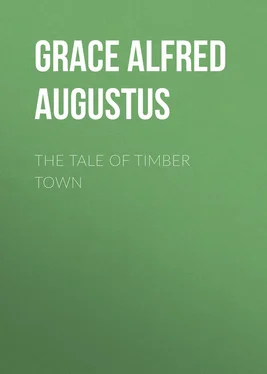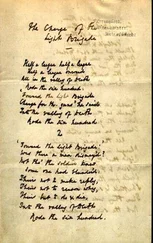Alfred Grace - The Tale of Timber Town
Здесь есть возможность читать онлайн «Alfred Grace - The Tale of Timber Town» — ознакомительный отрывок электронной книги совершенно бесплатно, а после прочтения отрывка купить полную версию. В некоторых случаях можно слушать аудио, скачать через торрент в формате fb2 и присутствует краткое содержание. Жанр: foreign_antique, foreign_prose, на английском языке. Описание произведения, (предисловие) а так же отзывы посетителей доступны на портале библиотеки ЛибКат.
- Название:The Tale of Timber Town
- Автор:
- Жанр:
- Год:неизвестен
- ISBN:нет данных
- Рейтинг книги:5 / 5. Голосов: 1
-
Избранное:Добавить в избранное
- Отзывы:
-
Ваша оценка:
- 100
- 1
- 2
- 3
- 4
- 5
The Tale of Timber Town: краткое содержание, описание и аннотация
Предлагаем к чтению аннотацию, описание, краткое содержание или предисловие (зависит от того, что написал сам автор книги «The Tale of Timber Town»). Если вы не нашли необходимую информацию о книге — напишите в комментариях, мы постараемся отыскать её.
The Tale of Timber Town — читать онлайн ознакомительный отрывок
Ниже представлен текст книги, разбитый по страницам. Система сохранения места последней прочитанной страницы, позволяет с удобством читать онлайн бесплатно книгу «The Tale of Timber Town», без необходимости каждый раз заново искать на чём Вы остановились. Поставьте закладку, и сможете в любой момент перейти на страницу, на которой закончили чтение.
Интервал:
Закладка:
“I rode,” replied Amiria, rising from the sofa. “My horse is on the drive. Come and see him.”
She led the way through the French-window, and linked arms with Rose, whilst the two strange figures followed like a couple of characters in a comic opera.
On the drive stood the Pilot, who held Amiria’s big bay horse as if it were some wild animal that might bite. He had passed round the creature’s neck a piece of tarred rope, which he was making fast to the tethering-post, while he exclaimed, “Whoa, my beauty. Stand still, stand still. Who’s going to hurt you?”
The Maori girl, holding her skirt in one hand, tripped merrily forward and took the rope from the old seaman’s grasp.
“Really, Captain,” she said, laughing, “why didn’t you tie his legs together, and then lash him to the post? There, there, Robin.” She patted the horse’s neck. “You don’t care about eating pilots, or salt fish, do you, Robin?”
“We’ll turn him into the paddock up the hill,” said Rose. “Dinner’s ready, and I’m sure the horse is not more hungry than some of us.”
“None more so than Mr. Scarlett an’ myself,” said Sartoris, “ – we’ve not had a sit-down meal since we were wrecked.”
CHAPTER IV
He sat on a wool-bale in his “store,” amid bags of sugar, chests of tea, boxes of tobacco, octaves of spirits, coils of fencing-wire, bales of hops, rolls of carpets and floor-cloth, piles of factory-made clothes, and a miscellaneous collection of merchandise.
Old Varnhagen was a general merchant who, with equal complacency, would sell a cask of whisky, or purchase the entire wool-clip of a “run” as big as an English county. Raising his eyes from a keg of nails, he glanced lovingly round upon his abundant stock in trade; rubbed his fat hands together; chuckled; placed one great hand on his capacious stomach to support himself as his laughter vibrated through his ponderous body, and then he said, “’Tear me, ’tear me, it all com’ to this. ’Tear, ’tear, how it make me laff. It jus’ com’ to this: the Maoris have got his cargo. All Mr. Cookenden’s scheming to beat me gifs me the pull over him. ’Tear me, it make me ill with laffing. If I believed in a God, I should say Jehovah haf after all turn his face from the Gentile, and fight for his Chosen People. The cargo is outside the port: a breath of wind, and it is strewn along the shore. Now, that’s what I call an intervention of Providence.”
He got off the wool-bale much in the manner in which a big seal clumsily takes the water, and walked up and down his store; hands in pockets, hat on the back of his head, and a complacent smile overspreading his face. As he paused at the end of the long alleyway, formed by his piles of merchandise, and turned again to traverse the length of the warehouse, he struck an attitude of contemplation.
“Ah! but the insurance?” he exclaimed. As he stood, with bent head and grave looks, he was the typical Jew of the Ghetto; crafty, timid, watchful, cynical, cruel; his grizzled hair, close-clipped, crisp, and curly; his face pensive, and yellow as a lemon.
“But he will haf seen to that: I gif him that much credit. But in the meantime he is without his goods, and the money won’t be paid for months. That gif me a six-months’ pull over him.”
The old smile came back, and he began to pace the store once more.
There was a rippling laugh at the further end of the building where Varnhagen’s private office, partitioned off with glass and boards from the rest of the store, opened on the street. It was a laugh the old man knew well, for he hopped behind a big pile of bales like a boy playing hide-and-seek, and held his breath in expectation.
Presently, there bustled into the warehouse a vision of muslin and ribbons. Her face was the face of an angel. It did not contain a feature that might not have been a Madonna’s. She had a lemon-yellow complexion, brightened by a flush of carmine in the cheeks; her eyes were like two large, lustrous, black pearls; her hair, parted in the middle, was glossy and waving; her eyebrows were pencilled and black; her lips were as red as the petals of the geranium. But though this galaxy of beauties attracted, it was the exquisite moulding of the face that riveted the attention of Packett, the Jew’s storeman, who had conducted the dream of loveliness to the scene.
She tapped the floor impatiently with her parasol.
“Fa-ther!”
She stamped her dainty foot in pretty anger.
“The aggravating old bird! I expect he’s hiding somewhere.”
There came a gurgling chuckle from amid the piled-up bales.
The girl stood, listening. “Come out of that!” she cried. But there was never another sound – the chuckling had ceased.
She skirmished down a by-alley, and stormed a kopje of rugs and linoleums; but found nothing except the store tom-cat in hiding on the top. Having climbed down the further side, she found herself in a difficult country of enamelled ware and wooden buckets, but successfully extricating herself from this entanglement she ascended a spur of carpet-rolls, and triumphantly crowned the summit of the lofty mountain of wool-bales. The country round lay at her feet, and half-concealed behind a barrel of Portland cement she saw the crouching form of the enemy.
Her head was up among the timbers of the roof, and hanging to nails in the cross-beams were countless twisted lengths of clothesline, and with these dangerous projectiles she began to harass the foe. Amid the hail of hempen missiles the white flag was hoisted, and the enemy surrendered.
“Rachel! Rachel! Come down, my girl. You’ll break your peautiful neck. Packett, what you stand there for like a wooden verandah-post? Go up, and help Miss Varnhagen down. Take care! – my ’tear Rachel! – look out for that bucket! – mind that coil of rubber-belting! Pe careful! That bale of hops is ofer! My ’tear child, stand still, I tell you; wait till I get the ladder.”
With Packett in a position to cut off retreat, and the precipice of wool-bales in front, Rachel sat down and shook with laughter.
Varnhagen naturally argued that his pretty daughter’s foot, now that the tables were so suddenly turned upon her, would with the storeman’s assistance be quickly set upon the top rung of the ladder which was now in position. But he had not yet learned all Rachel’s stratagems.
“No!” she cried. “I think I’ll stay here.”
“My child, my Rachel, you will fall!”
“Oh, dear, no: it’s as firm as a rock. No, Packett, you can go down. I shall stay here.”
“But, my ’tear Rachel, you’ll be killed! Come down, I beg.”
“Will you promise to do what I want?”
“My ’tear daughter, let us talk afterwards. I can think of nothing while you are in danger of being killed in a moment!”
“I want that gold watch in Tresco’s window. I sha’n’t come down till you say I can have it.”
“My peautiful Rachel, it is too expensive. I will import you one for half the price. Come down before it is too late.”
“What’s the good of watches in London? I want that watch at Tresco’s, to wear going calling. Consent, father, before it is too late.”
“My loafly, how much was the watch?”
“Twenty-five pounds.”
“Oh, that is too much. First, you will ruin me, and kill yourself afterwards to spite my poverty. Rachel, you make your poor old father quite ill.”
“Then I am to have the watch?”
“Nefer mind the watch. Some other time talk to me of the watch. Come down safe to your old father, before you get killed.”
“But I do mind the watch. It’s what I came for. I shall stay here till you consent.”
“Oh, Rachel, you haf no heart. You don’t loaf your father.”
Читать дальшеИнтервал:
Закладка:
Похожие книги на «The Tale of Timber Town»
Представляем Вашему вниманию похожие книги на «The Tale of Timber Town» списком для выбора. Мы отобрали схожую по названию и смыслу литературу в надежде предоставить читателям больше вариантов отыскать новые, интересные, ещё непрочитанные произведения.
Обсуждение, отзывы о книге «The Tale of Timber Town» и просто собственные мнения читателей. Оставьте ваши комментарии, напишите, что Вы думаете о произведении, его смысле или главных героях. Укажите что конкретно понравилось, а что нет, и почему Вы так считаете.












